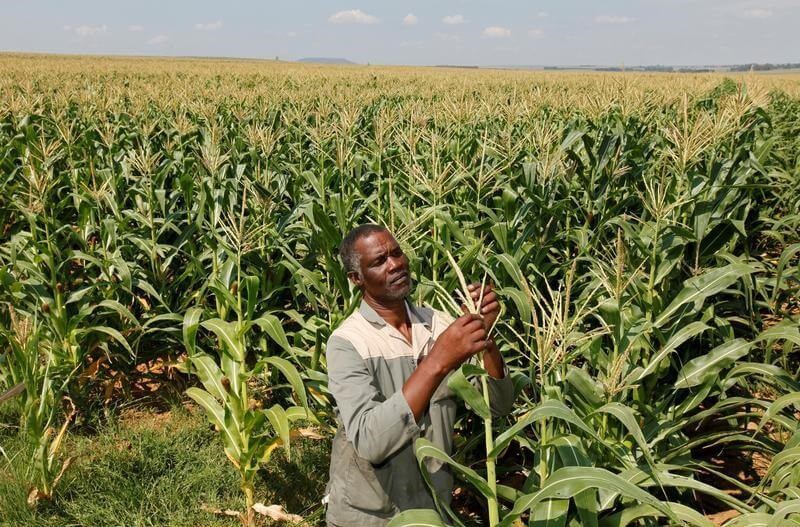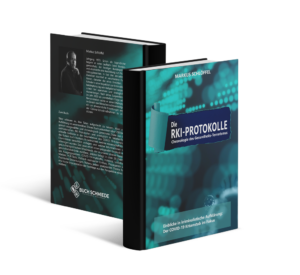Extractivism and Problems of the African Economy – Successfully Implementing Agriculture in Africa, Counter Strategies in Nigeria, by Thomas Wegener, Founder of GrowExpress Ltd. Nigeria
The pandemic is changing perceptions and prompting government steering measures. In April 2020, for example, the Senegalese state called for a new world order and general debt relief for Africa. The argument follows the assessment that production structures on the African continent are extractive in nature. The different economies of Africa are not homogeneously structured, but the discourse can rightly be narrowed to the fact that most economies are extractive. The dominant characteristic is thus the absence of structural transformation processes and the persistence of primary raw materials. This dependence on the export of raw materials and the little cultivated processing and use at home leads to instability and great dependence of national economic processes in global terms. Foreign currency revenues come primarily from the commodity sectors of mining, oil, gas and export-oriented agriculture. The reasons for this are manifold. One is the colonially inherited pattern, which has not been changed, although the states have often been independent for more than a century. The strengthening of the Asian region in particular, with rapid industrialization, led to high demand for these goods. But countervailing tendencies are also apparent, such as the African Union’s „African Mining Vision 2030“ project to convert the mining sector and bring about structural change. In public discussions surrounding the dominance of Asian capital in Africa and thus the loss of national control over the natural resources of the countries of Africa are doing their part to alarm the world’s population.
Counterstrategies of the state of Nigeria
 Nigeria currently has an ideal window of opportunity to overcome the „Dutch disease“. The agricultural economy plays a transformative key role in this process, where Nigeria will use its landscape advantages wisely and effectively.
Nigeria currently has an ideal window of opportunity to overcome the „Dutch disease“. The agricultural economy plays a transformative key role in this process, where Nigeria will use its landscape advantages wisely and effectively.
Nigeria’s agricultural sector reached a value of ~US$97 billion in 2020. Nigeria has ~84 million hectares of arable land, of which ~35M hectares (43%) is currently under cultivation. It also has an abundance of water resources consisting of large surface water bodies (268bn m³); groundwater (58bn m³); and an extensive coastline, coupled with rainfall that ranges from 300 to 4,000 millimeters per year. This means that Nigeria has ~280 billion cubic meters of surface water and untapped irrigation potential with three of the eight major river systems in Africa providing excellent agro-climate conditions. These conditions enable the cultivation of a wide range of agricultural products in the various regions of the country.
The raw material earth
„Nigeria is not yet using these ideal natural conditions and excellent resources efficiently enough,“ confirms Kingsley Ekwueme, Managing Director of GrowExpress Ltd. Specifically, crop yields are usually significantly lower than in comparable neighboring countries. Evidence of the „Dutch disease“ that has haunted the economy since the discovery of crude oil in Nigeria can be found in the lack of development of other industries, from which the economy and population suffer, prosperity is prevented, despite the abundance of raw materials.
Successful agriculture in Africa is possible
And this is where GrowExpress comes in. While respecting the principles of extractivism, the block farming business model is being jointly developed, which includes a modern inclusive agricultural economy in Africa, a hybrid of smallholder and commercial farming models. „This benefits from the management expertise and economies of scale of a large farm on the one hand, and optimized land use and productivity among smallholders on the other,“ explains Kingsley Ekwueme.
What does this mean in detail? GrowExpress Ltd. helps smallholder farmers increase production while ensuring repayment of necessary investments. The approach lowers the cost of production for smallholder farmers by scaling up and utilizing the capacity of tractors, reducing the cost of procuring seeds, fertilizer and other basic supplies. This approach exponentially increases yields. This is achieved by optimizing agronomic practices to site-specific conditions, tailoring farm management, and a locally adapted supply chain program that connects smallholder farmers.
In addition, GrowExpress Ltd. helps ensure that smallholders are insured against crop failure. „This security is very important for smallholder farmers because most of the time there is no capital available, as well as past experiences continue to fuel fears. Unlike GrowExpress, often the land used is farmed without formal land tenure rights. „Africa is looking to make the turn from a subsidy economy to environmentally sustainable modern agriculture. This is the goal GrowExpress Ltd. supports for an attractive agricultural economy with secure income, social peace, sustainable perspectives that counteract the rural exodus,“ explains Kingsley Ekwueme.
Creating local jobs and future prospects
GrowExpress has a clear goal to farm up to several thousand hectares per harvest for corn, soybeans, rice, sesame and ginger through organic growth. This also creates jobs – both in direct agriculture and the linked non-farm structure, through increased and recurring purchases and other economic activities. It is estimated that 2-3 additional direct jobs can be created by one successful smallholder farmer. GrowExpress Ltd. aims to develop this highly successful block farming model to >100,000 hectares and, when fully developed, projects stable, long-term income for smallholder farmers who will be lifted out of poverty and given a livable perspective.
The benefits of community block farming are far-reaching:
- Promotion of an inclusive community, such as equal rights for the single women who are usually left behind.
- Increasing land use efficiency, including forest and water, through modern, economical practices that can preserve closeness to nature while still providing efficient supplies.
- Provide economic and viable alternatives also for the youth to counteract rural exodus (to cities or abroad), or illegal activities in the beginning.
- Building local farms provides additional income to small farmers and attracts investment in health, education, and other aspects of socioeconomic progress.
Priority is national supply, then export
 Nigeria’s top priority is to ensure its own steadily increasing supply of basic foodstuffs. The next logical step is to ensure a stable supply to the African Free Trade Area (AfCFTA), which has been in place since January 2021 and has 1.3 billion people, one of the largest in the world.
Nigeria’s top priority is to ensure its own steadily increasing supply of basic foodstuffs. The next logical step is to ensure a stable supply to the African Free Trade Area (AfCFTA), which has been in place since January 2021 and has 1.3 billion people, one of the largest in the world.
After the security of supply of staple foods, further export diversification is to be achieved as a target through top non-oil exports (~19% 2020). The strong growth in global demand for sesame seeds – underpinned by its positioning as a healthy product in Asia and the European Union – also offers ideal export growth opportunities.
In addition, Nigeria is the world’s largest producer of cassava (~37% of African and ~20% of global production according to the latest FAO survey). Ethanol (produced from cassava) and other co-products also have strong export potential, which are far from being fully exploited. Nigeria already supplies cassava chips to China for use as animal feed and pharmaceuticals.
Conclusion: Will Africa replace Asia as the growth engine?
Nigeria is in transition and projects like GrowExpress Ltd. are helping the country and its people free themselves from the „resource curse.“ As a basic prerequisite for overcoming and freeing the curse, efficient and sustainable institutions are needed that provide politically and economically for free trade and a functioning financial system. This development will intensify in the coming years and Nigeria, as well as other African countries, will compliment Asia as a global growth engine and, after reaching the predicted momentum, potentially replace it.
Responsible in terms of press law:
Kingsley Ekwueme
Managing Director
GrowExpress Ltd.
Contact:
GrowExpress Limited
Kingsley Ekwueme
+234 7031135981
Mail: AtYourService@growexpress.biz
Cocoa House, Dugbe, 200263 Ibadan, Nigeria
GrowExpress office in Nigeria Cocoa House, Dugbe, 200263 Ibadan, Nigeria – Completed in 1965 at a height of 105 meters, Cocoa House was once the tallest building in Nigeria and the first skyscraper in West Africa. It is located in Dugbe, one of the main commercial areas in Ibadan, Oyo State, Nigeria.
PRESSEKONTAKT
GrowExpress Limited
Kingsley Ekwueme – Managing Director
Cocoa House, Dugbe
200263 Ibadan, Nigeria
Website: https://growexpress.org
E-Mail : AtYourService@growexpress.biz
Telefon: +234 7031135981



